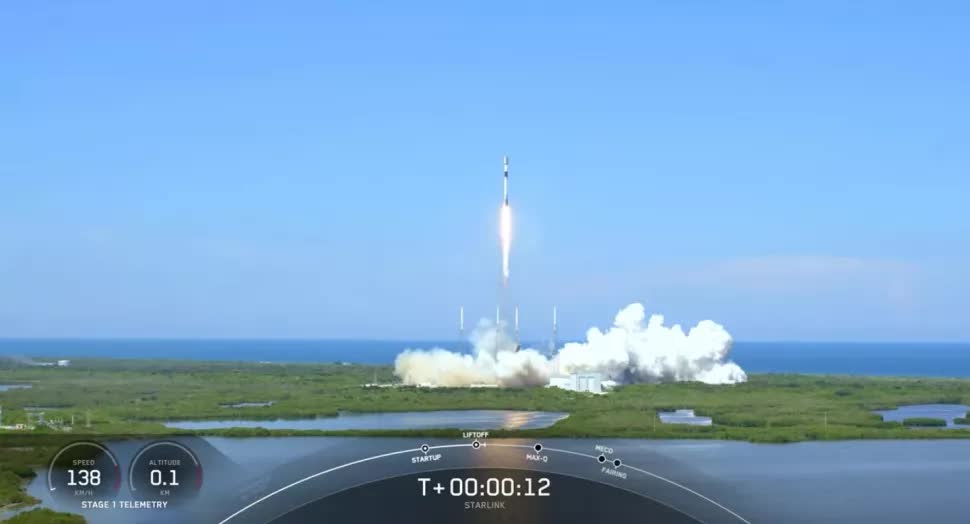Recap: SpaceX is one of the most exciting companies today when it comes to advancements in space travel. Never one to disappoint, the company launched yet another successful deployment of its Starlink satellites from Cape Canaveral on Friday. The launch marks the 23rd Starlink mission of the year, providing enhanced connectivity to users around the world.
The event marked the 37th launch of the year for SpaceX and was the 9th launch overall for the specific Falcon 9 first-stage rocket that was used. The launch's second stage carried 53 of SpaceX's flat panel satellites into orbit. Their successful deployment brings the total number of Starlink satellites deployed to 3,108.
The launch was carried out at the Cape Canaveral Space Force Station's Space Launch Complex 40 (SLC-40) at 3:21 PM Eastern Daylight Time (EDT) and lasted for just over 15 minutes. The first and second stages of the rocket separated approximately two and a half minutes after launch, at which time each stage completed their own independent steps to complete their missions.

The second stage continued further into space to deploy the Starlink satellite payload a little over 15 minutes after launch. The first stage, on the other hand, began its post-separation return trip to safely land on the SpaceX droneship, "A Shortfall of Gravitas," off of the Florida coast in the Atlantic Ocean several minutes later.
Falcon 9's first stage has landed on the A Shortfall of Gravitas droneship pic.twitter.com/uTqAuysTAh
--- SpaceX (@SpaceX) August 19, 2022
SpaceX's launch cadence and success record have been nothing short of impressive. With 37 orbital launches recorded this year so far, the company has easily bypassed 2021's record of 31 launches in a year. Yesterday's launch falls hot on the heels of two launches earlier this month. Starlink Group 4-26 was successfully deployed from the Kennedy Space Center on August 10. That launch was followed by the successful deployment of Starlink Group 3-3 from the Vandenberg Space Force Base on August 12. SpaceX currently plans to deploy two more launch groups from Kennedy and Vandenberg on August 28 and August 30.
The Starlink satellite internet constellation is a network of small, mass-produced satellites designed to communicate with earth-based transceivers to provide internet access to underserved areas. Currently, the network provides broadband access to 39 countries across Europe, North America, and South America. The list of countries includes coverage for Ukraine, who was given terminals and access in response to the Russian invasion in February 2022.
Image credit: SpaceX
